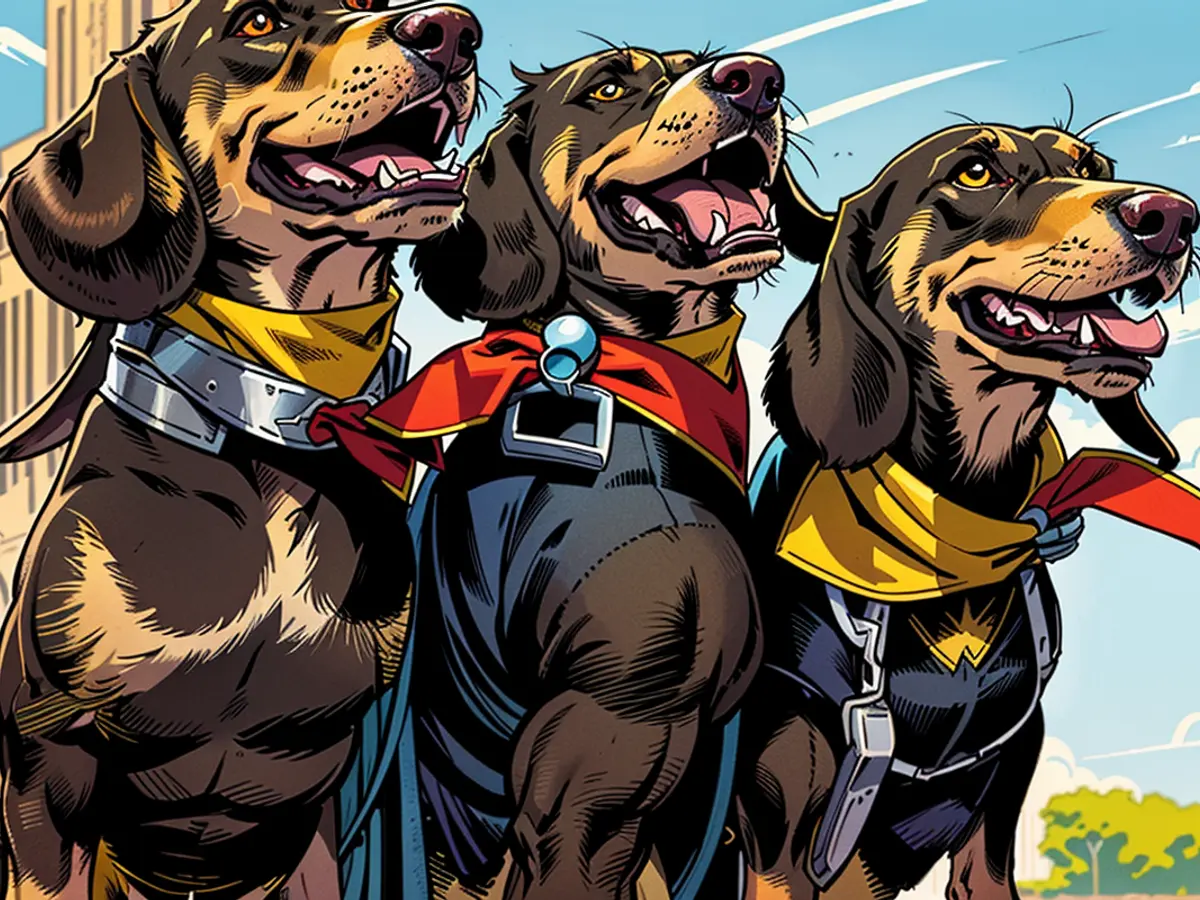Animal Protection - Culture war over the Dackel
Here's the translated text:
If he was the mascot for the 1972 Olympic Games, a loyal companion in the TV series "Hausmeister Krause - Ordnung muss sein" or a dashboard decoration in a car - the Dachshund is a cult figure in Germany. In recent weeks, concerns have arisen among owners regarding the future of the Dachshund. Fans of the little four-legged friend fear that a reform of animal protection laws could threaten the breed.
Different perspectives clash here. For dog breeders, and especially Dachshund breeders, the proposed regulations go too far and, in their opinion, significantly restrict the breeding of healthy animals. The federal government's plan, for example, aims to prevent the passing on of disadvantageous traits for animals, such as short legs, in breeding.
Animal welfare activists welcome the reform proposed by Federal Agriculture Minister Cem Özdemir (Greens) in principle. They also see room for improvement. But why does this topic stir so many emotions?
The Dachshund as a favorite breed in Germany
Few dog breeds have as many animals in Germany as the Dachshund. According to the German Kennel Club, over 6,300 Dachshund puppies were registered in its member clubs in 2022, making it the second most popular breed after the German Shepherd.
Heike Maiwald is not surprised by this. She is the spokesperson for the German Dachshund Club 1888, a breeding association with over 20,000 members. She herself is also an active breeder. "The Dachshund is so popular and widespread, across all generations. Many Dachshund owners have had three or four Dachshunds in their lives and have remained loyal to the breed," she says.
For Maiwald, the Dachshund is as much a part of Germany as the national eagle could be - she would even prefer a federal Dachshund instead. Comedian Tom Gerhardt shares this sentiment. As "Hausmeister Krause," he was always accompanied by his loyal Dachshund Bodo in the TV series of the same name. "He has something unique in the dog world. He has a strong will, is tenacious, and has a big courage - all in stark contrast to his small body," Gerhardt told the German Press Agency. At the same time, the Dachshund is also a family pet.
"All for the Dachshund"
Gerhardt also found his way into the Dachshund cult through his series. He was even invited to the German Dachshund Museum in Regensburg. Of course, the motto of the Dachshund club, "All for the Dachshund, all for the club, our lives for the dog," was also frequently cited in the series.
Controversy over Dachshund breeding
Currently, Dachshund fans are under scrutiny due to so-called "Qualzuchten." Short or crooked legs, for example, can harm the animals. Agriculture Minister Özdemir wants to limit breeding possibilities in a planned animal protection law reform. This affects all dogs, but the Dachshund is particularly in the spotlight.
What do breeders say?
Maiwald and the German Dachshund Club argue that this is unfair. The traits that fuel the debate no longer correspond to the breeding goal of the German Rassendachshund and are rejected by their breeders. Instead, they claim that uninformed breeders or those breeding to less stringent standards from abroad are the real problem, and they would not be affected by the law.
The German Animal Welfare League identifies a legislative gap. There is a lack of prohibition on the import and trade of animals with cruelty traits. Therefore, qualitative animals could continue to be bred abroad and then brought to Germany. The Animal Welfare League welcomes the regulations for breeding domestically, however, they criticize outdated and health-harming breed standards.
Özdemir clarifies that breeding healthy animals remains allowed: "This law does not ban the Dachshund, it's a Pro-Dachshund law, as it helps the Dachshund live pain-free." The Dachshund Club criticizes the law as too vague and providing too much room for interpretations regarding what constitutes cruelty.
"The Church in the Village"
Hausmeister Krause has already expressed his displeasure about the legislative reform, as Gerhardt reports, and says that this has been noted. He himself only says about it: "There are so many Dachshunds that have grown up healthy and lived well that one might as well leave the church in the village."
- Cem Özdemir, the Green Party's Federal Agriculture Minister, has proposed a reform to animal protection laws, raising concerns among Dachshund owners about the future of the breed.
- With over 6,300 registered Dachshund puppies in 2022, the breed is the second most popular in Germany, according to the German Kennel Club.
- Heike Maiwald, spokesperson for the German Dachshund Club 1888, believes the Dachshund's popularity and wide appeal across generations contribute to its popularity.
- At the same time, Tom Gerhardt, known for his portrayal of Hausmeister Krause in the TV series, describes the Dachshund as having a unique personality with a strong will, tenacity, and courage.
- Maiwald argues that the controversial traits affecting the Dachshund, such as short legs, no longer align with the breeding goal of the German Rassendachshund and are rejected by breeders.
- Animal welfare activists welcome Özdemir's reform, advocating for stricter regulations against uninformed or less stringent foreign breeders and outdated health-harming breed standards.
- Özdemir clarified that the proposed law is not a ban on the Dachshund but a measure to ensure healthy breeding and a pain-free life for the breed.
- Animal Protection Laws in Germany currently lack a prohibition on the import and trade of animals with cruelty traits, a gap that the German Animal Welfare League identifies.






